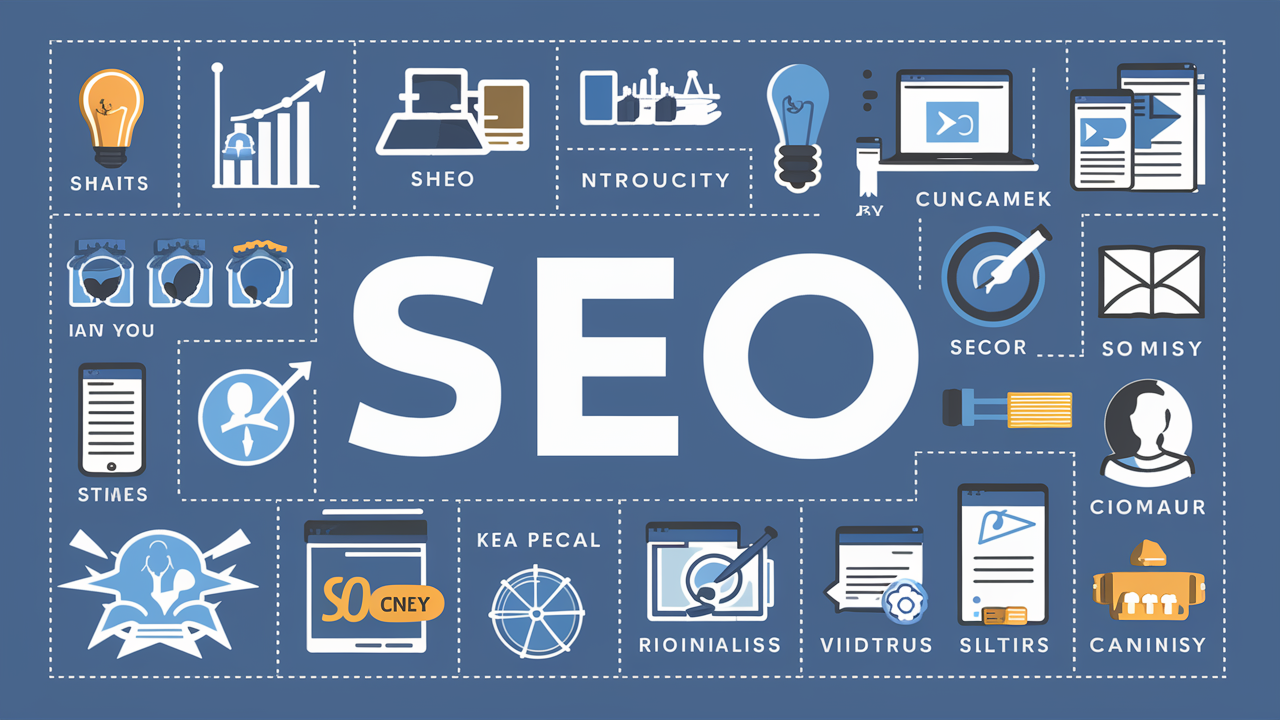TL;DR:
- SEO (Search Engine Optimization) helps improve your website’s visibility on search engines like Google.
- It involves optimizing your site’s content, structure, and keywords.
- Good SEO results in higher rankings, more website visits, and better engagement.
- Key aspects include on-page SEO, off-page SEO, and technical SEO.
- Regular monitoring and updates are crucial for long-term success.
What is SEO for Dummies?
If you’re new to websites and online marketing, you’ve probably heard the term SEO tossed around. It stands for Search Engine Optimization. Simply put, SEO involves making tweaks and improvements to your website so it ranks higher in search engine results. Why does this matter? Because the higher your rank, the more people will find and visit your website. Think of SEO as a digital spotlight for your online presence.Why is SEO Important?
SEO is essential because it connects businesses, bloggers, and e-commerce stores with people searching for what they offer. Here are some key reasons why SEO matters:- Increased visibility: Most users don’t scroll past the first page of search results. Ranking higher improves your chances of being seen.
- More traffic: A higher rank means more clicks, leading to more visitors to your site.
- Credibility: Websites that rank at the top tend to be seen as more trustworthy.
- Cost-effectiveness: Unlike paid ads, optimizing your site organically brings consistent traffic without ongoing spending.
How Do Search Engines Work?
Before diving into SEO techniques, it’s helpful to understand how search engines like Google function. Search engines use programs called crawlers to scan and index websites. These crawlers analyze your site for relevance and quality. When users type in a query, the search engine matches their request to the most relevant websites based on hundreds of factors. The process happens in milliseconds but is powered by complex algorithms.Basic Terms in SEO
For beginners, understanding common SEO terms is key. Here are some simplified definitions:- Keywords: Words or phrases people type into search engines. For example, ‘best pizza near me.’
- Organic traffic: Visitors who land on your site through unpaid (organic) search results.
- On-page SEO: Optimization efforts made directly on your site, such as improving content and using proper headings.
- Off-page SEO: Efforts made outside of your site, such as getting backlinks from other websites.
- Technical SEO: Improving the technical structure of your site to make it faster, mobile-friendly, and easier for search engines to crawl.
3 Key Areas of SEO
1. On-Page SEO
On-page SEO focuses on the elements you can control directly on your site. This includes:- Using keywords: Include keywords naturally in your titles, headers, and content. For example, in this article, we’ve used the keyword ‘What is SEO for Dummies?’ multiple times.
- Content quality: Write helpful, engaging, and properly formatted articles for your readers.
- Meta descriptions: Short summaries that appear under your website link in search results. Use these to explain what your page is about, enticing users to click.
2. Off-Page SEO
Off-page SEO includes activities performed outside your website to boost its authority and trustworthiness. The most common method is earning backlinks—links from other sites to yours. Here are some strategies:- Guest blogging: Write content for other websites and include a link back to your own.
- Social media sharing: Promote your content on platforms like Twitter, Facebook, or LinkedIn to increase visibility and drive traffic.
- Networking: Collaborate with other websites or influencers in your industry.
3. Technical SEO
Technical SEO involves making sure your website’s technical framework is optimized. These tasks may include:- Improving page speed: A slow-loading site can deter visitors and hurt your rankings.
- Mobile-friendliness: Ensure your site adjusts to the user’s device (e.g., smartphone, tablet).
- Indexing: Use tools like Google Search Console to check if your site is being indexed by search engines.
Steps to Start with SEO
Feeling overwhelmed? Here’s a beginner-friendly checklist to get started:- Research keywords: Use free tools like Google Keyword Planner to find search terms relevant to your audience.
- Optimize your website: Place keywords in strategic locations like titles, headings, and image alt tags.
- Create valuable content: Write blog posts, guides, and info-rich materials that answer specific questions.
- Build backlinks: Network with other websites to earn mentions and links.
- Track progress: Use tools like Google Analytics to monitor your traffic and performance.
An Example of SEO in Action
Imagine you’re a small bakery trying to draw local customers. You find the keyword ‘best cupcakes in [your city]’ has high search volume. Here’s how you might use SEO:- Write a blog post: Title it ‘Why We’re the Best Cupcake Shop in [City]’ and include pictures of your cupcakes.
- Optimize for local search: Make sure your business address is displayed on your website and sign up for Google My Business.
- Encourage reviews: Ask happy customers to leave reviews on platforms like Google or Yelp, adding credibility to your listing.
Tools You Can Use
Here are some free and paid tools that simplify SEO for beginners:- Google Analytics: Tracks your website’s traffic and performance.
- Google Search Console: Monitors your site’s indexing and lets you fix any issues.
- Yoast SEO: A plugin for WordPress users to optimize on-page SEO.
- Ahrefs: A paid tool for researching backlinks and keywords.

